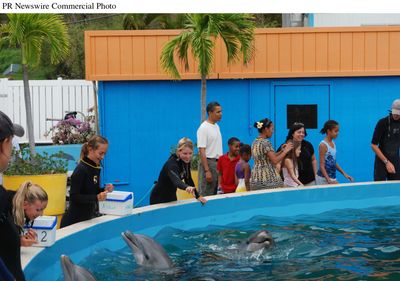Hawaii’s tourism trade feeling recession’s pinch
Falloff in business travel compounds troubles

Hawaii suffered one of its worst months for tourism in 18 years and has appealed to the state’s most famous native son – President Barack Obama – to help turn its fortunes around.
Hotel occupancy rates dropped to 75 percent in February, traditionally the state’s busiest month for tourism. It was the lowest level seen since occupancy dropped to 69.7 percent during the Persian Gulf War in 1991, according to Smith Travel Research.
The firm said the rates for February had ranged from about 80 percent to 88 percent over the past five years. The average daily room rate – another key measure of the industry’s health – dropped 12.4 percent in February from the same month in 2008.
Because of the recession, Americans have held tight to their travel dollars. Hawaii’s problems are compounded by an increasingly hostile attitude toward business travel, particularly when major corporations are laying off hundreds of workers and accepting government bailouts.
In 2008, business travel, such as conferences, conventions and business incentive programs, accounted for about 7 percent of tourism in Hawaii, or 442,000 visitors, according to state officials.
In a letter to Obama last month, Hawaii Gov. Linda Lingle and 95 government leaders, business owners and tourism officials urged the president to block any policies that would limit business travel in the future.
Lingle said 132 meetings and business trips had been canceled so far for this year and next, representing a loss of 87,003 room nights. The cancellations amount to a loss of $58.8 million in direct revenue and the loss of 694 full- and part-time jobs in the state’s tourism industry, according to the letter.
“In this period of economic downturn when our government and businesses are striving to restore economic stability, the last thing we should do is implement policies or encourage behavior that jeopardizes any industry,” the governor wrote.
Contributing to what many tourism officials see as the vilification of business travel, Northern Bank Trust became an example of improper spending in February when it hosted clients and employees at a golf tournament at the Riviera Country Club in Los Angeles after accepting $1.6 billion in taxpayer assistance. In response, Sen. John Kerry, D-Mass., introduced legislation barring such expenditures for companies receiving taxpayer dollars.
Marcia Wienert, the Hawaii governor’s tourism liaison, said the state’s tourism industry had been hurt by companies that had not accepted government money but had canceled trips for fear of a negative perception.
“Those are the residual effects that were unintended but are having huge impacts on our economy,” she said.
Hawaii’s tourism leaders have launched a campaign pushing the message that workers who attend meetings in Hawaii are happier, more productive and more focused afterward.